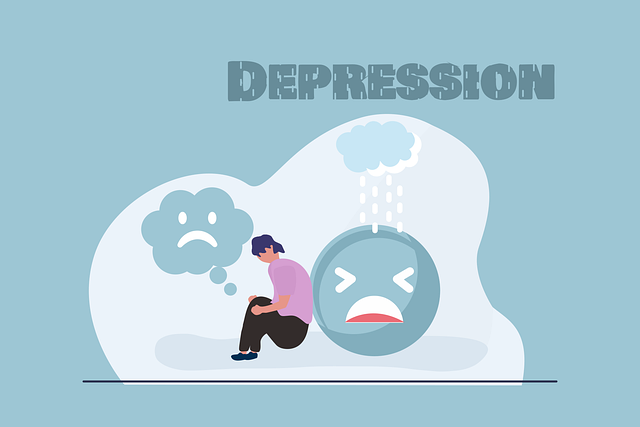Louisville's Crisis Intervention Teams (CITs) are crucial for managing mental health crises, especially among individuals with autism spectrum disorder (ASD). These teams, comprising law enforcement, paramedics, and mental health professionals, use person-centered approaches to de-escalate high-risk situations. Training focuses on self-care for team members and emotional/social skills for those in crisis, enhancing safety, compassion, and outcomes. Louisville's ASD therapy programs emphasize emotional intelligence, empathy building, and risk assessment, tailored to each individual's unique needs. Continuous improvement through updated curriculum, feedback, and resilience building ensures CITs are well-equipped to support individuals with ASD during crises, fostering a healthier community environment.
In Louisville, Crisis Intervention Teams (CITs) play a vital role in addressing mental health crises, particularly among individuals with Louisville Autism Spectrum Disorder (ASD) Therapy. This article explores the crucial aspects of CIT training programs, focusing on their impact and effectiveness. We delve into key components, including evidence-based practices, team dynamics, and de-escalation techniques tailored to Louisville’s unique needs. Additionally, we discuss strategies for continuous improvement and support, emphasizing the importance of regular updates and community engagement in enhancing crisis intervention outcomes.
- Understanding Crisis Intervention Teams: Their Role and Impact in Louisville
- Key Components of Effective Training Programs for ASD Therapy
- Strategies for Continuous Improvement and Support in Crisis Intervention Training
Understanding Crisis Intervention Teams: Their Role and Impact in Louisville

In Louisville, Crisis Intervention Teams (CITs) play a pivotal role in addressing mental health crises and enhancing community safety. These specialized teams, often comprised of law enforcement officers, paramedics, and mental health professionals, are trained to de-escalate high-risk situations involving individuals experiencing severe emotional distress or psychosis, including those with Louisville Autism Spectrum Disorder Therapy needs. The CIT model prioritizes a collaborative, person-centered approach, focusing on de-escalation techniques, communication skills, and understanding the nuances of various mental health conditions.
Through comprehensive training programs that incorporate Self-Care Practices for team members and Emotional Regulation as well as Social Skills Training for individuals in crisis, Louisville’s CITs are equipped to provide effective interventions. This approach not only ensures the safety of both the individuals in distress and the responders but also fosters a more compassionate and informed response to mental health emergencies. By empowering teams with the tools to navigate complex situations, these programs contribute significantly to improving outcomes and promoting a healthier, more supportive community environment.
Key Components of Effective Training Programs for ASD Therapy

Effective training programs for Autism Spectrum Disorder (ASD) therapy in Louisville are multifaceted and robust, incorporating key components that prepare mental health professionals to support individuals with ASD. These programs prioritize Emotional Intelligence, equipping therapists with the ability to recognize and respond sensitively to the unique emotional experiences of those on the spectrum. Through role-playing scenarios and experiential learning, therapists develop Empathy Building Strategies to foster strong therapeutic alliances.
Additionally, comprehensive training emphasizes the critical aspect of Risk Assessment for Mental Health Professionals. Participants learn to identify potential risks and triggers within ASD individuals’ lives, including communication challenges, sensory sensitivities, and social difficulties. By mastering these skills, Louisville-based therapists gain the confidence to create safe and supportive environments tailored to the complex needs of their clients.
Strategies for Continuous Improvement and Support in Crisis Intervention Training

Continuous improvement is vital for crisis intervention team training programs, ensuring they remain effective and relevant in a dynamic world. At Louisville Autism Spectrum Disorder Therapy, we implement several strategies to enhance our approach. Regularly reviewing and updating curriculum content allows us to incorporate the latest research and best practices in mental wellness podcast series production. This ensures that trainees are equipped with up-to-date knowledge and skills.
Additionally, fostering a culture of feedback and reflection is key. We encourage open dialogue among participants and instructors, creating a safe space for sharing experiences and insights. Through this collaborative process, we identify areas for improvement and enhance our Crisis Intervention Guidance. Moreover, promoting resilience building among team members enables them to better support individuals in crisis, fostering an environment where learning from challenges is encouraged and supported.
Crisis intervention team training programs, particularly those focused on Louisville Autism Spectrum Disorder (ASD) therapy, play a pivotal role in enhancing community resilience and support. By equipping professionals with effective strategies, these programs not only improve individual outcomes but also foster a more supportive environment for individuals navigating crises. Continuous improvement and ongoing support are essential to ensure the team’s readiness and effectiveness, ultimately benefitting the mental health landscape of Louisville.









